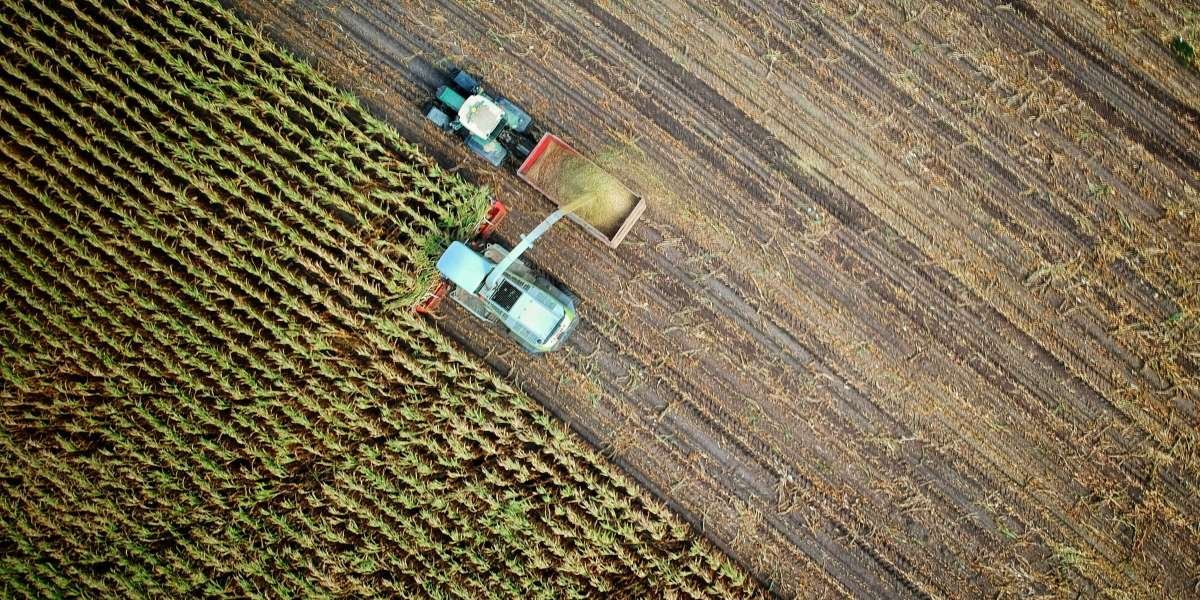As global concerns about climate change and soil degradation grow, organic farming has emerged as a beacon of sustainable agriculture. This practice not only promotes healthier ecosystems but also plays a critical role in carbon sequestration—capturing and storing atmospheric carbon dioxide in the soil. At the heart of this approach lies the strategic use of natural fertilizers, including compost, bio-fertilizers, and innovative products like seaweed extract.
Understanding Carbon Sequestration in Agriculture
Carbon sequestration refers to the process of capturing carbon dioxide (CO2) from the atmosphere and storing it in soil, plants, or other natural reservoirs. Organic farming practices are uniquely positioned to enhance this process by:
- Increasing organic matter in the soil.
- Reducing greenhouse gas emissions from synthetic fertilizers.
Research shows that soils managed organically can store up to 20% more carbon compared to conventionally farmed soils. This increase not only mitigates climate change but also improves soil fertility, ensuring sustainable crop production.
"The soil is the heart of agriculture; nurturing it today means securing the future of farming."
The Role of Natural Fertilizers in Organic Farming
Building Soil Organic Matter
Natural fertilizers like compost and green manure are rich in organic material, which breaks down over time to form humus—a key component in carbon storage. They improve soil structure, enhance water retention, and create a favorable environment for beneficial microbes.
Boosting Nutrient Efficiency
Natural fertilizers release nutrients slowly, aligning with crop growth cycles. This reduces the risk of nutrient leaching and ensures more efficient use of resources. Seaweed-based fertilizers, for instance, are increasingly popular due to their balanced nutrient profile and ability to stimulate plant growth naturally.
Seaweed fertilizer, derived from marine algae, has gained traction for its dual benefits: promoting plant health and improving soil carbon sequestration. Farmers worldwide are turning to seaweed products for their eco-friendly and cost-effective nature.
Natural Fertilizers as a Carbon-Smart Choice
Compost: The Cornerstone of Carbon Sequestration
Compost is a staple in organic farming for good reason. Made from recycled organic waste, compost enriches the soil with carbon and other essential nutrients. Studies suggest that adding compost to farmland can increase soil carbon levels by as much as 40% over a decade.
- Composting reduces waste in landfills, lowering methane emissions.
- It creates a closed-loop system, recycling nutrients back into the soil.
The Seaweed Advantage
Seaweed fertilizers are another game-changer in organic farming. Packed with nutrients like potassium, magnesium, and micronutrients, seaweed enhances plant resilience against pests and environmental stressors. Additionally, it boosts the soil’s capacity to retain carbon, amplifying its role in carbon sequestration.
Farmers often inquire about seaweed fertilizer price and its cost-effectiveness. While the initial investment may vary depending on the product and location, the long-term benefits for soil health and crop yield make it a worthwhile choice. For instance, bulk options like seaweed extract 25 kg price are increasingly accessible, especially in regions like India, where organic farming is on the rise.
The Connection Between Soil Health and Carbon Storage
Healthy soil acts as a sponge for carbon dioxide, transforming it into organic compounds stored within the soil matrix. By integrating natural fertilizers, farmers can enhance the soil's ability to sequester carbon while simultaneously improving its fertility.
Statistics That Speak Volumes
- Organic farming can reduce agricultural greenhouse gas emissions by up to 40%.
- Soils enriched with organic matter store an estimated 58–78 gigatons of carbon annually worldwide.
These figures highlight the transformative potential of organic farming in combating climate change.
The Economic and Environmental Benefits of Natural Fertilizers
Cost-Effectiveness
For farmers considering a switch to organic methods, cost is often a concern. Products like seaweed extract for plants are not only environmentally friendly but also economically viable. The competitive seaweed price per kg in markets ensures accessibility for small-scale and commercial farmers alike.
Environmental Gains
Natural fertilizers reduce the dependency on synthetic inputs, curbing their associated emissions. By promoting biodiversity and soil health, they contribute to a regenerative agricultural model that benefits both farmers and the planet.
Real-Life Success Stories
Farmers across the globe are witnessing the benefits of combining organic farming with natural fertilizers. For instance, in India, the adoption of seaweed-based fertilizers has led to a 25% increase in crop yields, while also improving soil carbon levels. This success is mirrored in other regions where organic farming is transforming previously degraded lands into productive ecosystems.
For those interested in exploring the role of seaweed fertilizers further, resources on their applications and benefits can be invaluable. Learn more about sustainable solutions with a focus on natural products like seaweed fertilizer to enhance farming practices.












